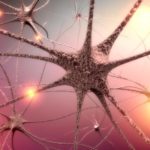Among people with autism, social interactions generally ensue social anxiety and fear. To fully understand such behavioral deficits among autists, neuroscientists have studied the brain circuits synonymous with it.
According to new research from the Scripps Research Institute, their efforts to map the brain yielded various areas correlated with the social deficits of autism: the emotional center of the brain and a region implicated in the coordination of thoughts and actions.
In the study, two circuits able to control social preference in rodents were identified by researchers. The findings led to one neural circuit connecting the rodent’s infralimbic cortex to the basolateral amygdala resulting in social deficits when activity is reduced. The second neural circuit identified connects the prelimbic cortex to the basolateral amygdala, in which a surge of activity led to social deficits, the co-authors indicated.
“To understand something properly, you need to know where to look. It’s a needle-in-the-haystack problem,” the co-authors stated in a news release.
“Using a technique called optogenetics in mice, we controlled the neurons that were active during negative experiences at the precise time of social engagement. This manipulation of the circuit resulted in them avoiding social interaction. It’s a bit like when you see a friendly face, but then have a flashback of a negative experience that’s strong enough to make you decide to walk the other way,” the co-authors explained.
With the new findings released, researchers broke new ground on our understanding of the role brain circuitry plays in social deficits exhibited by people with autism. But given the complexity of the subject, researchers assert they have only scratched the surface on fully comprehending such social impairment in autism.
“The brain circuitry underlying the social symptoms of autism is almost certainly highly complex and we’re just beginning to map it,” Page concluded.


